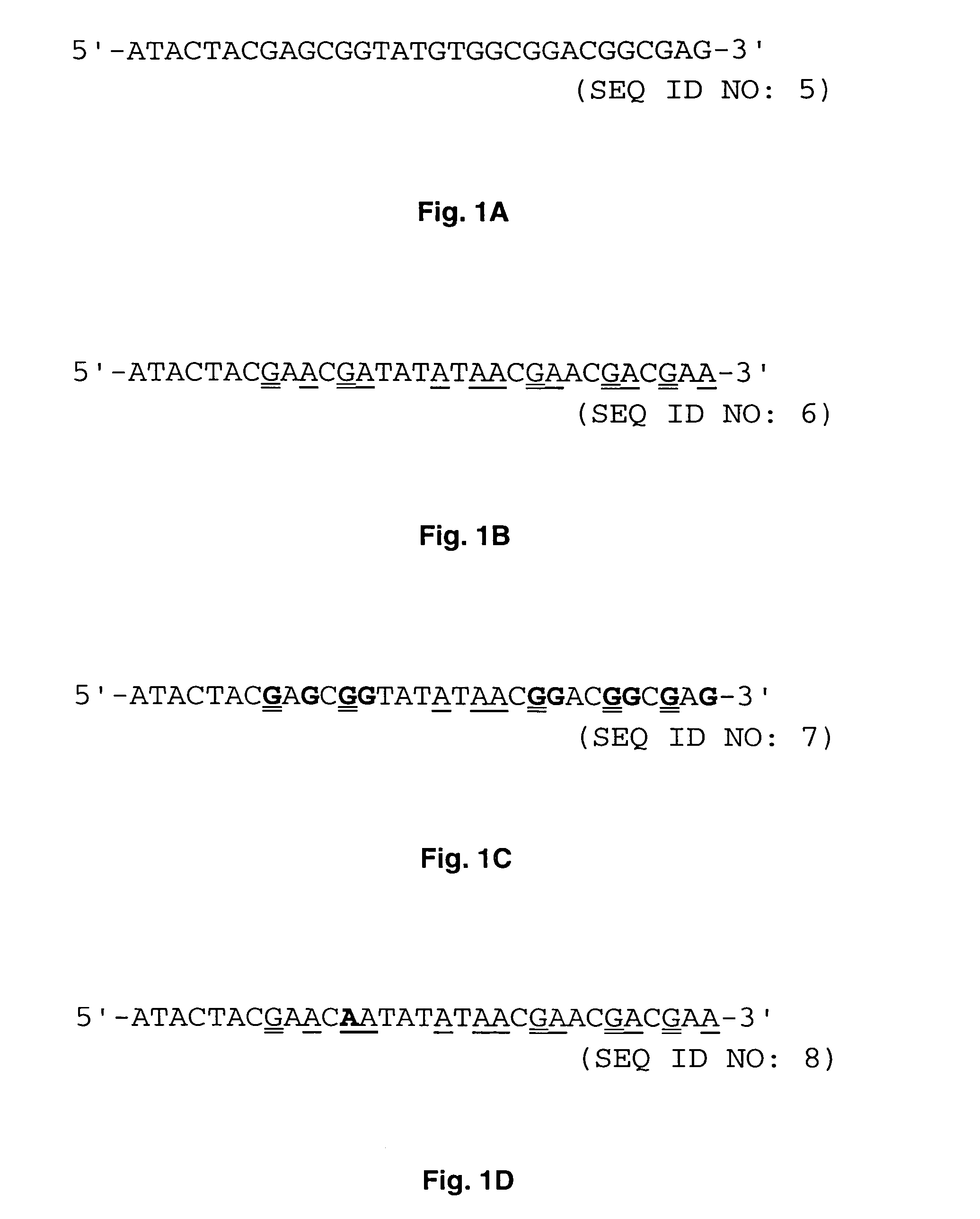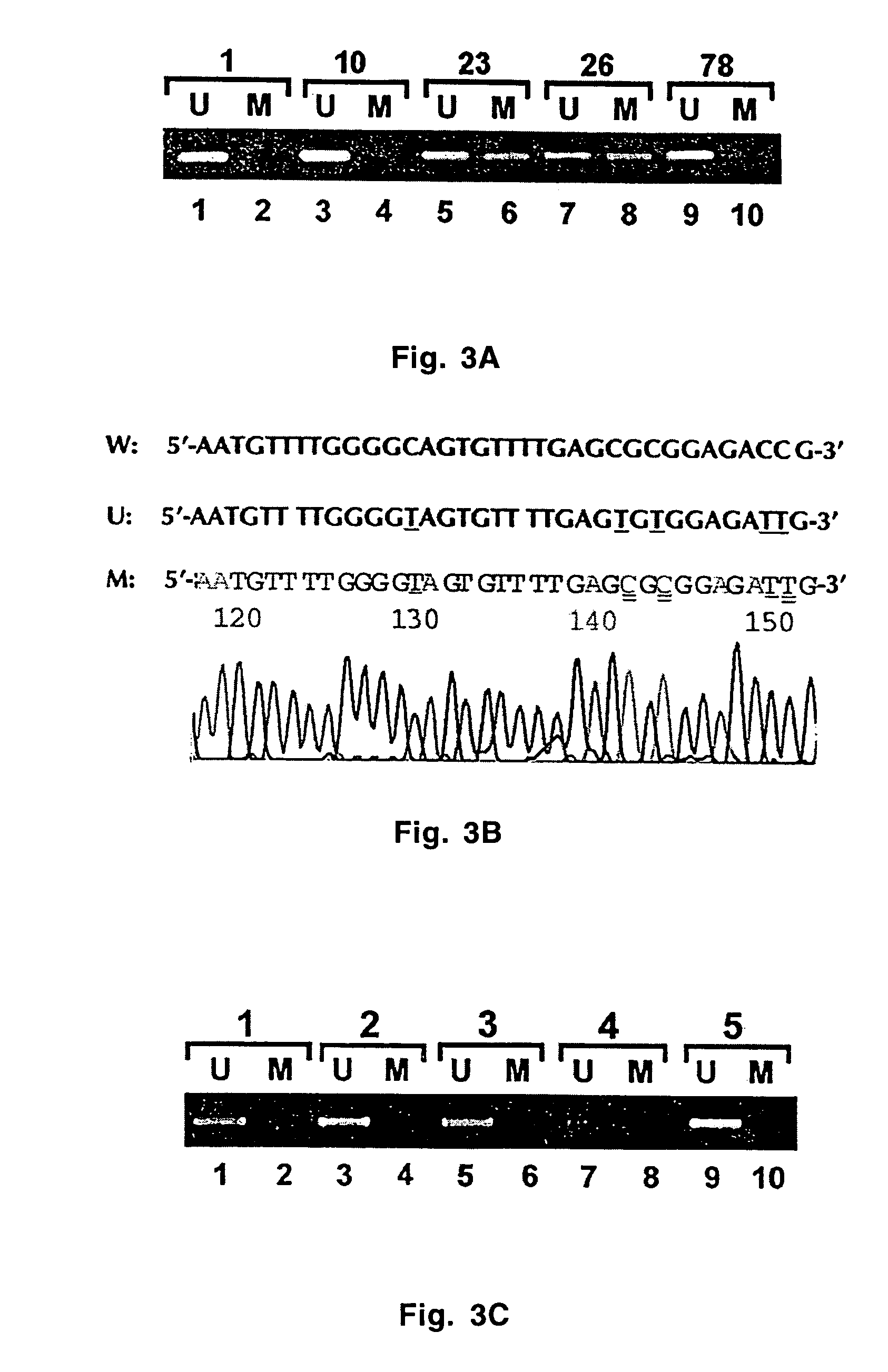CpG retrieval of DNA from formalin-fixed pathology specimen for promoter methylation analysis
a formalin-fixed pathology and methylation technology, applied in the field of cpg retrieval of dna from formalin-fixed pathology specimens for promoter methylation analysis, can solve the problems of loss of heterozygosity of genes, poor quality of dna extracted from formalin-fixed tissues, and instability of the genome, so as to reduce the overall survival
- Summary
- Abstract
- Description
- Claims
- Application Information
AI Technical Summary
Benefits of technology
Problems solved by technology
Method used
Image
Examples
example 1
Promoter Methylation Analysis
[0036]Using the surgical pathology files of Arkansas Central Healthcare System, Little Rock (November 1990–November 1999) and of the University Hospital of Arkansas, University of Arkansas for Medical Sciences, Little Rock (July 1997–November 1999), 413 cases of head and neck squamous cell carcinoma (HNSCC) were identified and retrieved with available microscopic slides and paraffin-embedded tissue blocks. Each case was individually examined microscopically. A tissue section was only considered satisfactory for the study if it contained normal mesenchymal tissues (skeletal muscle and / or salivary glands) and two or more of the following components: normal squamous mucosa, dysplasia, carcinoma in situ, and invasive cancer. Small biopsy specimens consisting exclusively of tumor were excluded from the study. Four-micron thick recut unstained histologic sections were obtained from each selected block for morphologic examination by hematoxylin and eosin staini...
example 2
CpG Retrieval of DNA from Formalin-Fixed Samples
[0043]Methylation-specific PCR (MSP) was developed to analyze promoter methylation status of various genes. DNA is modified prior to methylation-specific PCR by sodium bisulfite so that all cytosines that are free of methylation are converted to thymine. Only those cytosines in the CpG sequence (CpG cytosines) that are methylated will remain as cytosines.
[0044]It was observed that when methylation-specific PCR was applied to paraffin-embedded, formalin-fixed pathology specimen, the chemical modification of DNA by sodium bisulfite was incomplete. Up to 80% of cytosines that are not in the CpG sequence (non-CpG cytosines) could not be converted to thymine after bisulfite treatment. The number of the non-CpG cytosines resistant to bisulfite modification varied among different samples and this was probably due to variations in the duration of formalin fixation. Such insufficient modification by sodium bisulfite was seen in both hOGG1 and h...
example 3
Effects of Formalin Fixation on Sodium Bisulfite-Mediated DNA Modification for Methylation-Specific PCR
[0051]Four xenografts were harvested and fixed in 10% formalin for 4, 8 and 24 hours before being processed and embedded in paraffin. Four DNA samples were collected from each xenograft: one from fresh tissue and three from tissues fixed in formalin for 4, 8 and 24 hours. The number of DNA samples was 16 for 4 xenografts.
[0052]All 16 samples were subjected to bisulfite modification with and without CpG retrieval (boiling in citrate buffer for 30 minutes). A total of 32 bisulfite-modified DNA samples were obtained.
[0053]All 32 samples were subjected to PCR amplification using both methylated-specific and unmethylated-specific primers for MGMT and MLH1 promoters. A total of 128 PCR reactions were performed.
[0054]All 128 PCR products were subcloned and 5 colonies for each sample were amplified for DNA sequencing. Efficiency of sodium bisulfite-mediated DNA modification between fresh a...
PUM
| Property | Measurement | Unit |
|---|---|---|
| temperature | aaaaa | aaaaa |
| temperature | aaaaa | aaaaa |
| length | aaaaa | aaaaa |
Abstract
Description
Claims
Application Information
 Login to View More
Login to View More - R&D
- Intellectual Property
- Life Sciences
- Materials
- Tech Scout
- Unparalleled Data Quality
- Higher Quality Content
- 60% Fewer Hallucinations
Browse by: Latest US Patents, China's latest patents, Technical Efficacy Thesaurus, Application Domain, Technology Topic, Popular Technical Reports.
© 2025 PatSnap. All rights reserved.Legal|Privacy policy|Modern Slavery Act Transparency Statement|Sitemap|About US| Contact US: help@patsnap.com



